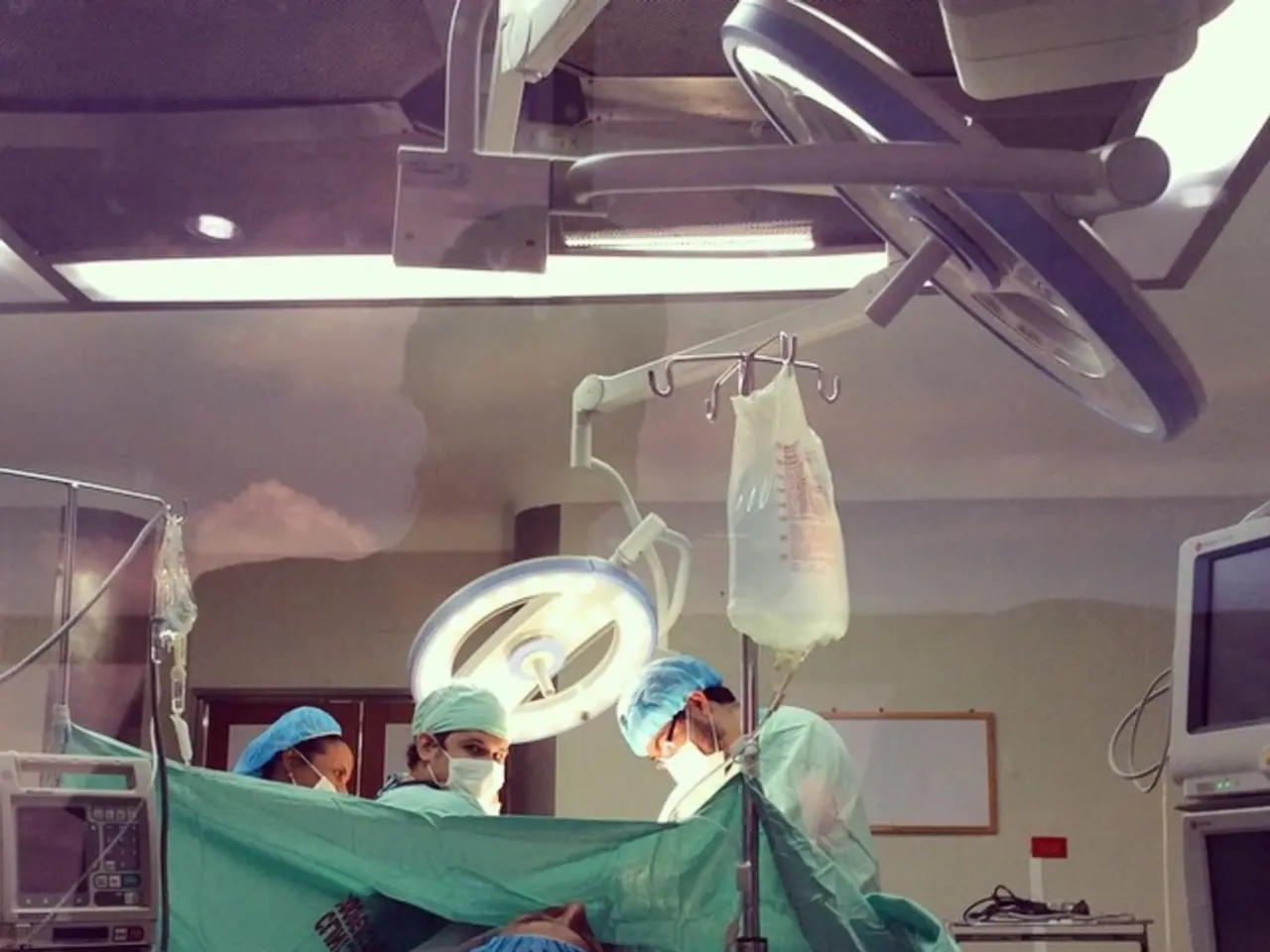Approval granted to advanced robotic surgical systems in the UK
The National Institute for Health and Care Excellence (NICE) has given its approval for the use of eleven robotic surgery systems within the UK's National Health Service (NHS), marking a significant step forward in the adoption of cutting-edge technology for improved surgical outcomes.
Among the approved systems are advanced ones like Intuitive's da Vinci 5 and Medtronic's Hugo system, both of which have recently received CE mark approval. These robotic systems are set to support around 70,000 minimally invasive procedures annually in the NHS, with a goal to increase this number to half a million robot-assisted operations per year by 2035.
Robotic surgery offers numerous advantages that aim to transform patient care. The use of 3D cameras and highly stable, tremor-free instruments enables smaller incisions, reducing tissue trauma and blood loss. This leads to faster recovery and shorter hospital stays. The technology also has the potential to reduce patient wait times and free up hospital beds by improving surgical efficiency. Moreover, it provides better outcomes and reduces risks during complex procedures like cancer-related organ removals, joint replacements, or hysterectomies.
However, the high cost of these robotic systems, ranging from $500,000 to $2.5 million per machine, and the higher per-procedure expenses compared to traditional laparoscopic surgery pose challenges.
Despite these challenges, the NHS's strategic expansion of robotic surgery systems reflects a commitment to adopting technology that can improve surgical outcomes and operational efficiency over the next decade. The evidence collection process, part of NICE's Early Value Assessment, will continue over the next three years to demonstrate the cost-effectiveness of robot-assisted surgery.
Dr. Anastasia Chalkidou, program director of NICE's HealthTech program, expressed her belief that these technologies have the potential to transform both soft tissue and orthopaedic surgical care in the NHS. The data gathered during this period will allow NICE to evaluate how these technologies can improve patient care and help ensure NHS resources are directed towards interventions that deliver meaningful clinical benefits and long-term value to the health service.
According to patient organizations, the potential benefits of robotic surgery include faster recovery times, shorter hospital stays, quicker return to work, less pain, and reduced scarring compared with traditional surgery. The first Health Technology Evaluation, looking at AI in analysis of X-rays for lung cancer, was published in September 2023, signalling the beginning of a new era in healthcare technology within the NHS.
- The strategic expansion of digital health technologies like robotic surgery systems in the National Health Service (NHS) represents a commitment to leveraging science and technology to enhance patient care and operational efficiency over the next decade.
- Robot-assisted surgeries, such as those using Intuitive's da Vinci 5 and Medtronic's Hugo system, have the potential to transform medical-conditions management by offering faster recovery times, shorter hospital stays, less pain, and reduced scarring compared to traditional surgery.
- In the realm of health-and-wellness, the integration of health tech innovations, like artificial intelligence in X-ray analysis for lung cancer detection, marks a significant step in revolutionizing disease diagnosis and treatment within the NHS, ushering in a new era of cost-effective patient care.




